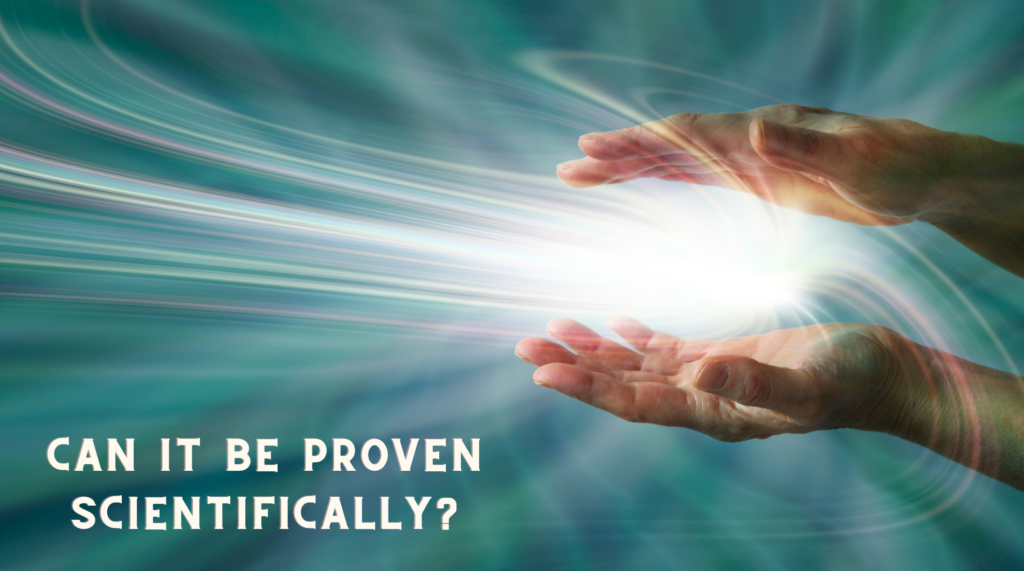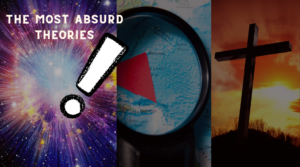It’s not only easy to believe in things you don’t want to believe in — it’s a challenge for some people to avoid believing in things that can’t be proven.
There are several highly controversial topics on supernatural vs scientific that has been hotly debated for centuries- whether or not there is anything supernatural that can be proven scientifically. Some believers say yes, and skeptics who believe the opposite.
Summarizing the arguments for and against what exists in the unknown, as well as which side of the debate has more compelling evidence to back them up, is the aim of this blog post.
Can anything supernatural be proven scientifically?

What do I define as a supernatural phenomenon? The paranormal is a general term for anything believed to exist outside natural law. This includes telekinesis, ghosts, and life after death. The supernatural is an umbrella term that covers both paranormal and religious beliefs. ‘Supernatural’ is the overarching category that contains the specific subcategories of ‘paranormal’ (elements of reality that purportedly defy scientific laws) and ‘religious’, pertaining to the gods or deities of religions. Before we can explore whether or not there are any scientifically testable examples of either, we must discuss what science can study in the first place.
Science is a method of knowledge acquisition. It attempts to explain the world and events within it using observable and repeatable evidence. In order to do so, it uses various methods. This includes experimentation, to test hypotheses (ideas that are not necessarily true) and provisional laws (rules that typically need to be proven using evidence), to find truths about the universe. Science is solely concerned with those things that can be proven using tangible evidence. The supernatural is not subject to this kind of experimental testing, therefore cannot be proven.
If there are items outside the empirical sciences that are supernatural, these would be religious phenomena rather than scientific phenomena. This is because religion has no empirical basis but only appeals to faith or belief. Religious phenomena do not need to be proven either since they are only concerned with what people choose to believe.
Is science already proving the existence of supernatural things?
Some would say that science is in fact simultaneously proving the existence of both the supernatural and miracles. But this is a large mistake. Science does not prove anything, it disproves. An example of a supernatural claim being contradicted by science is the divinity of Jesus Christ. Science, through textual criticism and archaeological digs, has found that the Gospels were written decades after Jesus’ death and are therefore unreliable as eyewitness testimonies. If one takes this into consideration, it becomes clear that doesn’t mean that God didn’t exist. It simply means that they didn’t exist in a particular form (i.e. that he didn’t exist as a human being). Science cannot prove the existence of God, nor can it disprove miracles.
To be clear, I am not saying that science disproves the existence of any kind of supernatural phenomenon. The reason that this is such a common claim by skeptics is that many religious believers will cite studies like the above (reliance on eyewitness testimony etc) when trying to defend the validity of their faith.
Also read: How many dimensions of human consciousness do we have?
Can the supernatural come under physical laws?
Even if supernatural phenomena are imaginable, they would still be outside the realm of science, as demonstrated above. In order for there to be a scientific explanation for something unreal (such as a ghost), it must first fit into the natural world.
What’s more, empirical evidence demonstrates that paranormal elements (impossible events) are in fact impossible. For example, every documented instance of ghosts has been attributed to psychological disorders. Therefore, any supernatural phenomenon that is not attributable to an external cause will have no observable evidence. That is because it cannot be proven scientifically.
What if a supernatural event is observed?
Perhaps the most common argument from the religious side of this debate is: “if science cannot explain something, it must be supernatural.” To clarify: science can never observe any supernatural phenomenon. It is because these are by definition impossible and therefore not possible to record. If, however, a scientific observation does not have an obvious natural cause, skeptics will simply say that it still has a natural cause that has yet to be discovered (but could one day be); whereas believers will claim that God must have intervened and performed the action in question. Either way, for there to be any kind of scientific study into what is deemed supernatural, it must first fit into some natural law.
There is a certain bias toward the existence of God that religious people must fight against; the same way a scientist must fight against bias for naturalism. Supernatural explanations may appear to be good explanations because they are so enthusiastically embraced by believers, but that’s only because it is natural to believe in something supernatural. It is like how many people believe in ghosts, even though these are not scientific entities. They still feel like they should exist because they “seem right”.
If a believer is convinced that a particular observable event is somehow supernatural in nature, he must provide natural evidence for his claim. That is not as easy as it sounds. It requires an appeal to the scientific method. The mere fact that an event cannot be explained does not mean it’s supernatural, and the mere fact that it can be explained does not mean it’s naturalistic. The evidence must support both sides, and not just the side a person wants to believe.
Concluding paragraph
I believe that the more people learn about science, the more they will realize that there is nothing supernatural. I have come to believe that there are no accounts of ghosts and poltergeists because they do not exist. If there are any phenomena outside of our understanding of the world, then it can only be attributed to external causes and therefore has natural causes behind them which have yet to be discovered.
- AI-Powered PCs: Overhyped Trend or Emerging Reality? - August 21, 2024
- Princeton’s AI revolutionizes fusion reactor performance - August 7, 2024
- Large language models could revolutionize finance sector within two years - March 27, 2024



